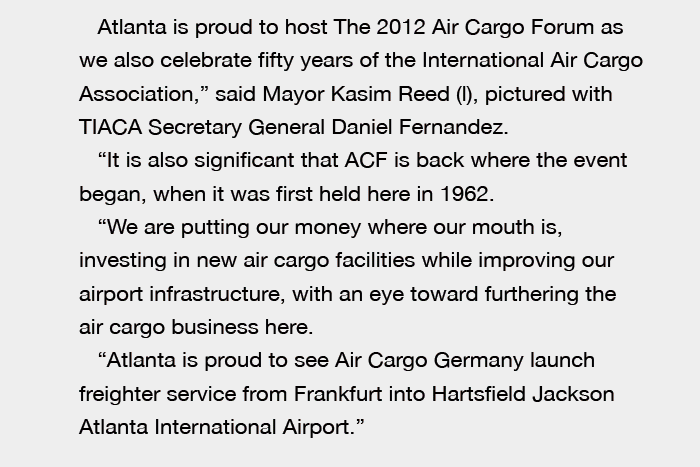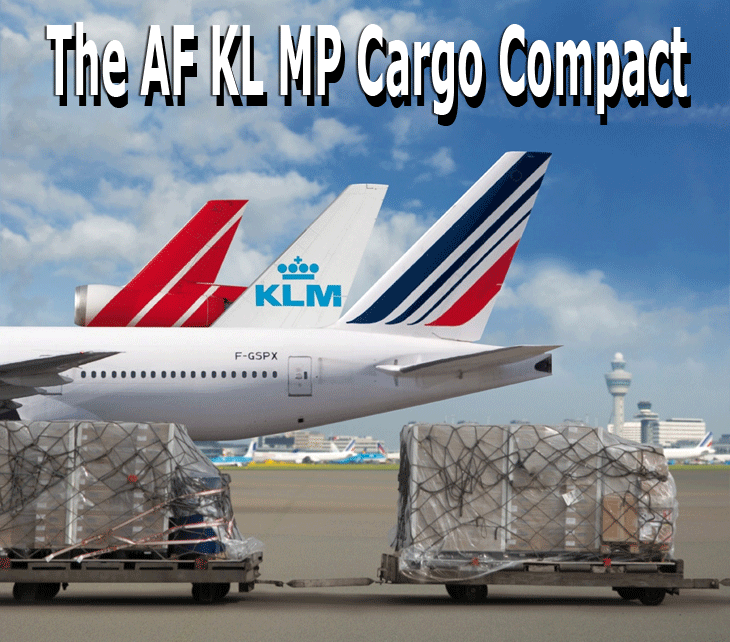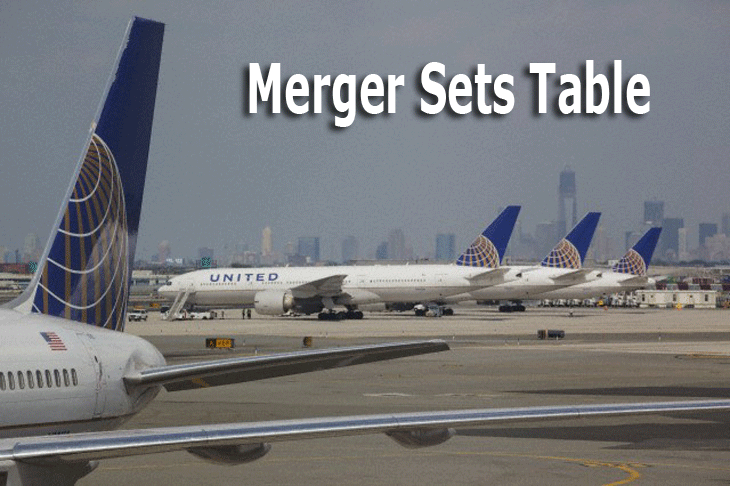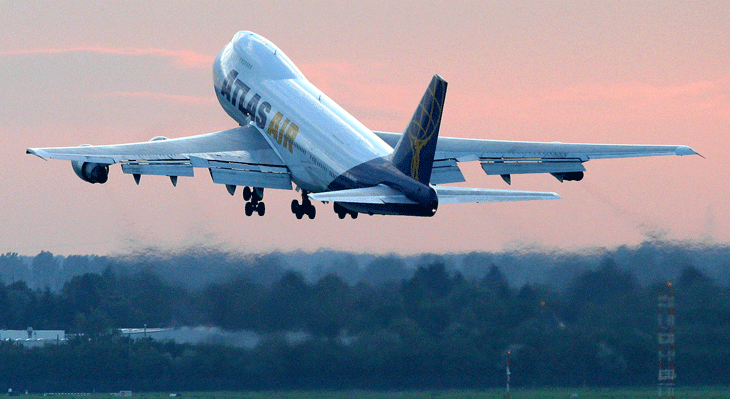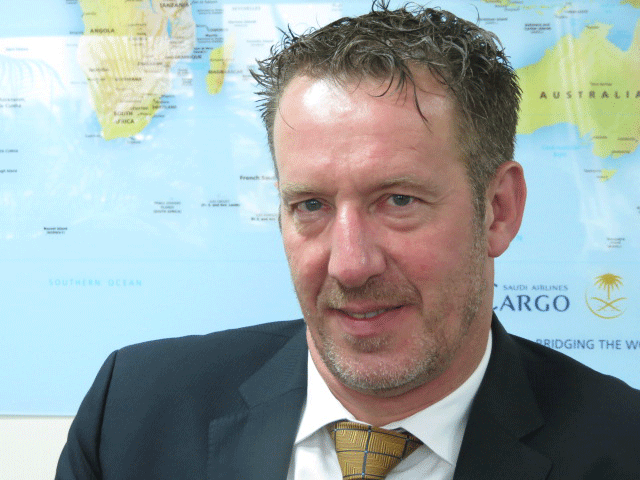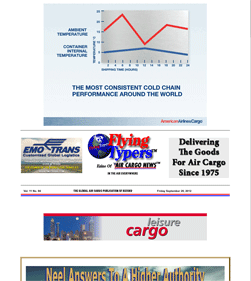 |
 |
|
| |
||
|
Vol. 11 No. 96 Wednesday October 3, 2012 |
|
The big air
cargo machine known as Air France/KLM/Martinair
is a leading indicator of the global air cargo
business, and while not exactly predicting
doom and gloom, offers some observations,
bringing one voice and message to represent
all three carriers. AF/KL/MP is quick to not
overstate the obvious or underplay the challenges
driven by a very difficult world market in
2012.
|
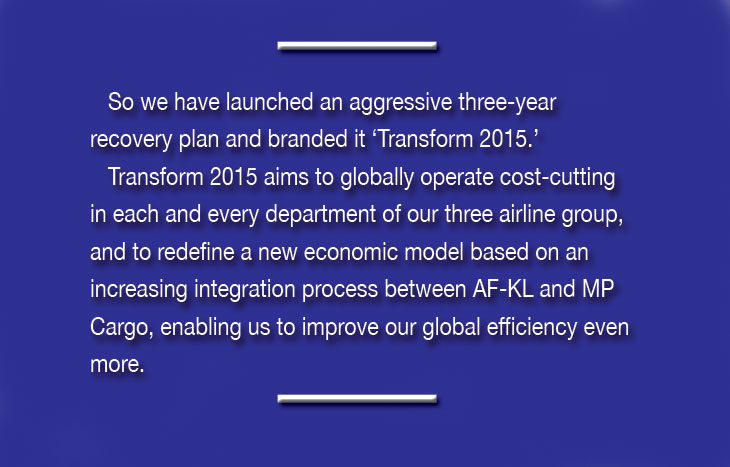 |
“Persistent
slow activity in international trade, further
to the various successive crises we have faced
since 2008, drives the air cargo environment
in a kind of continuously difficult situation.
“Besides,
the constant overcapacity we can observe almost
everywhere is an additional handicap, since
overcapacity mechanically drives the yields
down, even though part of the industry has
tried—although unevenly—to counter
this situation by capacity discipline through
temporary freighter fleet reduction.
“At the
same time, the delivery of very efficient,
wide body, long-haul, palletized passenger
aircrafts to many airlines (such as the B777-300ER)
and the arrival on the market of brand new
full freighters of the latest generation (such
as the B747-8F) continues, adding considerable
additional belly hold and main deck capacity
which, again, mechanically increases the already
existing overcapacity.
“AF/KL/MP
believe that there will be a seasonal pattern,
e g. that Q4 will be better than summer.
“Nonetheless,
all advanced indications point to a very small
peak…
“Looking
ahead to 2013 and beyond is a difficult point
to elaborate upon, since many parameters are
out of our immediate control.
“Traditionally,
cargo activity is directly and tightly linked
to the health of international trade and to
the confidence the economical operators have
or don’t have in this frame of exchange.
“One must
admit the present situation in Europe, where
our three airline group is based, is not very
good.
“State
debts have heavily impacted the business and
hence, the way out of the tunnel is not that
clear.
“But further
down the road and just over the horizon, 2014
could hopefully be the year of some recovery.
“On the
bottom line, which is where all focus must
end up being applied, we are not profitable,
and that includes our AF/KL/MP Cargo activities.
“So we
have launched an aggressive three-year recovery
plan and branded it ‘Transform 2015.’
“Transform
2015 aims to globally operate cost-cutting
in each and every department of our three
airline group, and to redefine a new economic
model based on an increasing integration process
between AF-KL and MP Cargo, enabling us to
improve our global efficiency even more.
“We are
also dedicated to continue developing our
‘capacity discipline’ in the cargo
field, at the same time as increasing the
load factor of our long-haul, palletized passenger
flights, thus utilizing our full freighters
only when it has an economic rationale to
do so.
“Thanks
also to our ‘Agility Loop’ process,
we are focusing towards the improvement of
our full freighter fleet global productivity
and cost-effectiveness.
“Last
but not least, we continue to focus very much
on the quality we offer to our customers and
we keep a very strong relationship and close
links in the market via our Customers Services
Initiatives, which covers our extended worldwide
network.
“The idea
is to be up close and personal and to always
be there and available to understand specific
needs and expectations of the shipper.”
Geoffrey
Get
On Board Air Cargo News FlyingTypers |
If
You Missed Any Of The Previous 3 Issues Of
FlyingTypers |
|||||
|
|||||
FT092712 |
FT100112 |
||||
|---|---|---|---|---|---|


